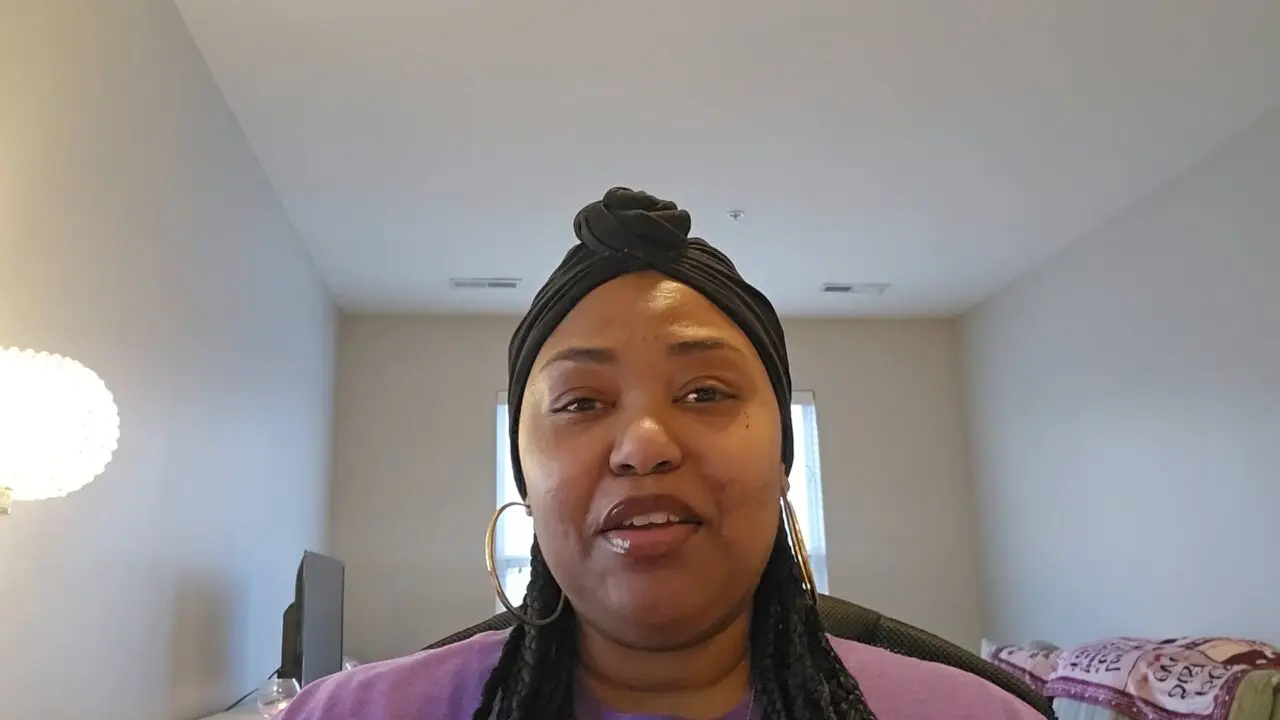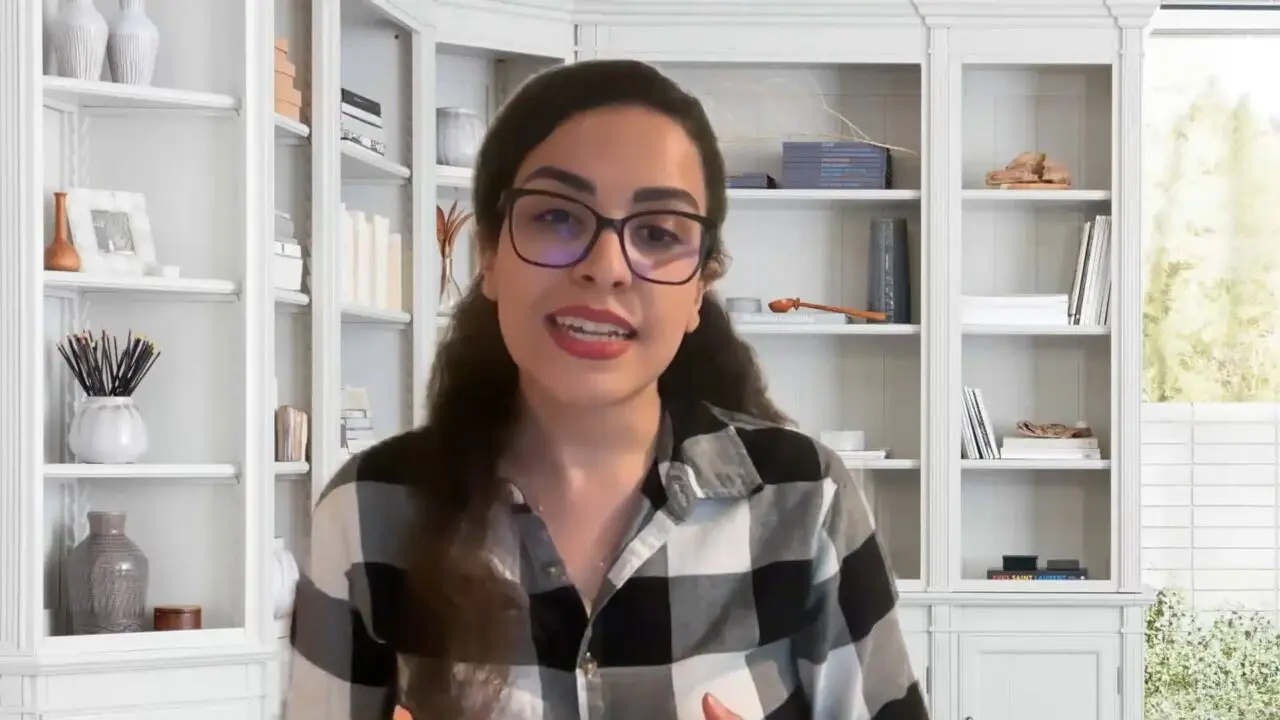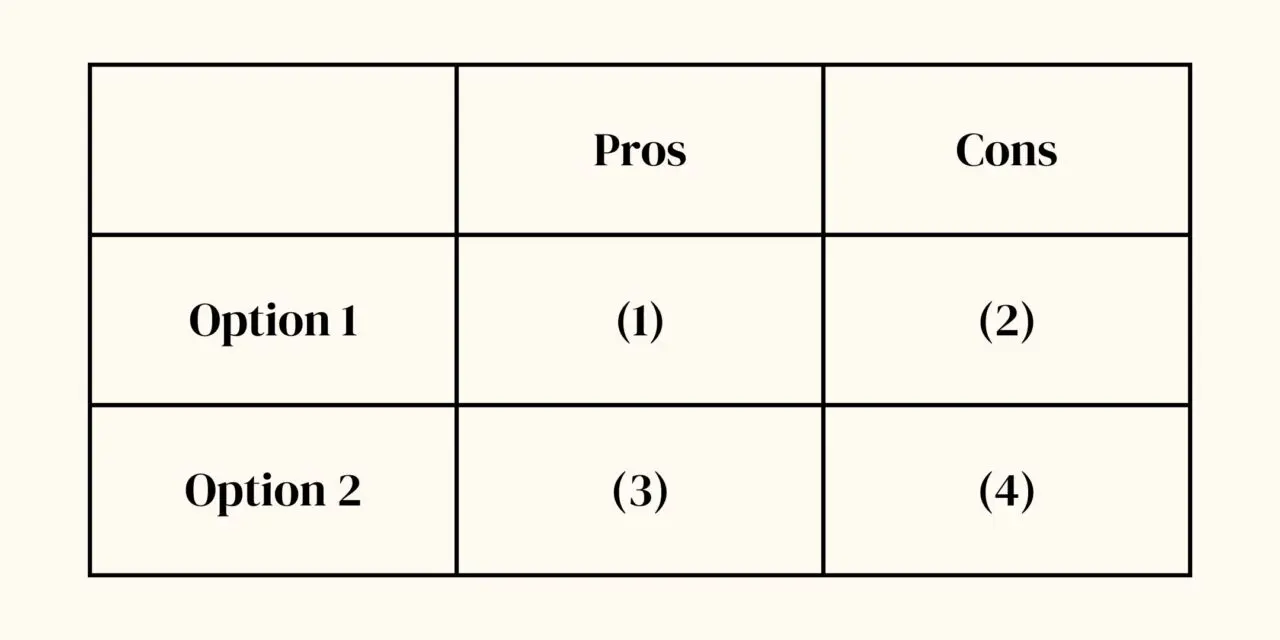Pros and Cons
Facing strong cravings or emotional impulses? Stuck trying to make a tough decision? Pros and Cons can help you act wisely.
Stories

Here's my pros and cons list for taking extra anxiety medication. The first row is a traditional pros and cons list. The second row is unique and valuable.

The thought of dating scares me like level eight on the stress scale. Scary ‑ just the thought of creating a dating profile gets my heart racing and my guts bubbling.

My stress level was at an 8 or 9 out of ten...Normally, my go‑to is to avoid and not make a decision, and then end up making a decision because I just avoided it.

One day after a fight that I had with my boss, my urge was to quit. I just wanted to give my resignation and quit.
Community Tips
I used Pros and Cons for coping with my binge eating. What ended up helping me most was writing binging’s biggest con on a bright pink post‑it and taping it to my pantry door. Whenever I had cravings and ended up in the kitchen, I’d be reminded of the thing that I f‑ing hate most about binging, and it would help me turn around and ride the wave. I’d have to use other coping skills too, but Pros and Cons was the first thing I’d need in my chain.
Pros and Cons really help me with tough emotional decisions. When I have to make big choices, I often freeze up and try to avoid them, which makes things worse and makes me feel bad about myself (ashamed!). But when I use this skill, it helps me think more clearly about scary or intense situations and gives me a bit more control.
I like that this skill lets me see that I do have choices in all situations; a lot of the time I feel really powerless against my big feelings. The last time I used the skill it was about taking a new job, and it was a decision that was wrapped up in all kinds of mess‑relationships, money, my values‑everything! Laying it all out on paper let me get clearer on what I actually wanted to do for me.
When I was first trying to get sober, I would make Pros and Cons lists about drinking. The urges would get so intense, but having that visual reminder of how big the cons list was and how short the pros list was really helped get me through some tough moments.
At first it was hard to be honest with myself. For the pros of self‑injury I was imaging my partner, she’d say ‘There are no pros.’ When I answered for real real, things got really interesting.
I struggle with lying ‑ white lies and bigger lies. For the longest time I didn’t really even notice I was doing it, but it has messed things up with my girlfriend. I made a Pros and Cons ‑ and kept revising it and making it even more specific. I didn’t realize that a lot of time I just do it because I’m worried I’ll be judged. But, I forget stuff. I took a picture of the latest version and made it my phone background. Sometimes I just randomly see it, but also I look after I’ve lied or I catch myself wanting to lie.
Why Use this Skill
When decisions feel tough, it’s easy to get overwhelmed by all the options and potential consequences. Clearly listing out the Pros and Cons can help make things clearer. Pros and Cons can be particularly useful for reducing impulsive behaviors, by helping you stay focused on what’s most important to you when you’re emotionally overwhelmed.
When to Use This Skill
Use Pros and Cons when:
- You’re struggling to make a decision or know what to do.
- You have intense urges to hurt yourself, use drugs, binge/purge, or do other self-destructive behaviors.
- You want to weigh two options or possible solutions to problems.

Overview Video
KikiHow to Use This Skill
Pros and Cons is useful whenever you need to decide between two options, choices, solutions, or actions.
As a DBT skill, we use it specifically as a way to decide whether or not to engage in impulsive behaviors. When you practice Pros and Cons for emotional urges ahead of time, it can help you fight the urges when they show up.
To decide between two options, we suggest you draw out a grid like this:

If you want to use Pros and Cons as a skill for reducing impulsive behavior, Option 1 would be “acting on the impulsive urge” and Option 2 would be “resisting the impulsive urge.”
Work your way through the grid, listing both the advantages and disadvantages of each option. It’s easiest to focus on what would happen if you did or did not do each option.
- For box (1), the pros of option 1: consider what positive or wanted things you think would happen if you went with option 1?
- For box (2), the cons of option 1: consider what negative or unwanted things you think would happen if you went with option 1?
- For box (3), the pros of option 2: consider what positive or wanted things you think would happen if you went with option 2?
- For box (4), the cons of option 2: consider what negative or unwanted things you think would happen if you went with option 2?
As you think about the pros and cons, make sure you consider both short-term consequences (like, “I feel better when I yell”) and long-term consequences (like, “my relationship with my roommate will probably get worse”).
Finally, Circle the 1-3 pros or cons that are most important to you. Then, use your lists to weigh the options and make a decision!
If you made the Pros and Cons of an impulsive behavior, put the list in your distress tolerance kit or someplace you’ll see the list every day as a reminder. Make sure you make a different Pros and Cons list for each different impulsive behavior you struggle with.
Resources
Pros and Cons podcast
Podcast on Pros and Cons, from Bay Area DBT & Couples Counseling Center
DBT Series: Distress Tolerance
TikTok video about Pros and Cons, from Jaye Mindful Expansion Expert
Related Skills
Wise Mind
Find your inner wisdom.
Radical Acceptance
Acknowledge what’s true and let yourself grieve.
Mindfulness of Current Emotion
Feel your emotions fully to reduce suffering.
Distraction
Find things that distract you from pain.